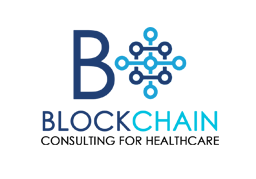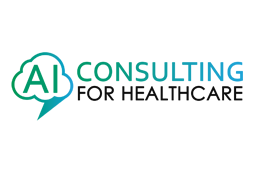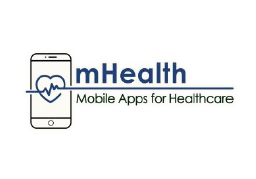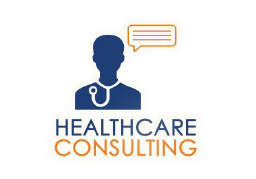Our SolutionsA Suite of End-to-End Solutions
Blockchian

Blockchains are a highly reliable, secure mechanism for storing and synchronizing digital records, replacing single points of failure with a secure network of validated transactions.
The following differentiates blockchains from traditional databases:
- Security: Data cannot be changed once it is committed in the system
- Open: It is open sourced and transparent
- Commercial: The technology was designed for commerce and scalability. It uses the concept of a shared ledger which is similar to an accounting ledger
- Synchronized: All activity on the distributed ledger is automatically reflected across the network
- Smart: The smart contracts feature enables autonomous execution of functions based on predefined conditions
Two main areas where blockchain technology can accelerate the digital transformation in your organization is where you have lack of transparency requiring reconciliation of business transactions and the other when you need to track assets and inventory across your value chain extended from your suppliers to your customers.
We recommend the below specific pre-requisites when to consider blockchain as part of your digital transformation journey -
- Manual processes: A great number of processes are still in paper form, opening the door to unnecessary operational risks
- Lack of transparency: The mixture of manual, disparate systems and disorganized data creates databases with few actionable insights and analysis paralysis
- Disorganized compliance data: Data is not transferred between departments and organizations efficiently, resulting in unreliable customer due diligence
- Disparate systems: Trading, order management, and settlement processes are housed in separate systems, in addition to multiple copies of shared ledgers, leading to time-consuming and expensive reconciliation processes
- Cyber security risk: Legacy systems give rise to cyber security risk as a result of segmented IT infrastructure. A hack into just one backdoor can compromise the whole organization
As your start with your blockchain journey in your organization below are some key areas to consider:
- Governance — Need to address questions like who owns the blockchain? How does new consensus algorithms or changes to the protocol take place?
- Security — How do we protect the end points, what are the security considerations for the different nodes in the blockchain.
- Privacy — How do we ensure pseudo anonymity. What privacy considerations do we take into account
- Scalability — How many nodes will be on the blockchain, will the current blockchain infrastructure be scalable for the required number of nodes in your organization’s usecase.
- Interoperability — Will the blockchain interact with other blockchains ? How will data be interoperable across difference blockchains.
- Integration — How will the integration take place with existing legacy systems
- Speed and performance- Time taken to add the blocks and record transactions
Even though blockchain offers tremendous savings, but initial high capital cost to purchase hardware and integration with existing may deter rapid adoption. Most organizations are currently focused on Proof of Concepts and Pilots. As the technology rapidly matures focus on production systems will rapidly take the center stage.
Please contact us to discuss specific potential Use cases for the Pharmaceutical and Healthcare Industry segment especially for Patient Recruitment and Clinical Trials.
AL/ML/RPA Consulting

- Artificial Intelligence and Machine Learning automation services.
- Robotic Process Automation for high volume assignments.
- Solution Architecture for enterprise solutions.
Artificial Intelligence, Machine Learning and Robotic Process Automation has the potential to transform healthcare organizations, leading to tremendous cost savings and enhanced efficiency for better patient outcomes. Saviance has identified several use case applications for its clients in the areas of workflow automation and Clinical Trials Patient recruitment. End to end services include Solution Architecture and Design, Development, Testing, Implementation and Support.
AI applications may potentially create $150 billion in annual savings for the US healthcare economy by 2026. Growth in the AI health market is expected to reach $6.6 billion by 2021—that’s a compound annual growth rate of 40 percent. In just the next five years, the Health AI market will grow more than 10x.
Mobile Health

- Push more towards R&D activities and medication adherence.
- Secure supply chain logistics.
- Fighting against counterfeit drugs.
The global mHealth market size is expected to reach $49.12 billion by 2020, growing at a CAGR of more than 35% over the next three years. Over 325,000 Healthcare Mobile Apps are now available in Apple iTunes and Google Play stores. Growing aging population along with rising incidences of chronic diseases such as cancer, heart ailments, and diabetes is anticipated to drive market demand. While the use of mHealth devices and apps is already widespread in clinical trials, pharmaceutical giants are now setting their sights on connected drug delivery platforms that will automatically detect and log patients’ medication use to improve adherence.
In addition, mHealth offers a multitude to opportunities to the pharmaceutical industry ranging from enhanced R&D activities and medication adherence to securing the supply chain and combating counterfeit drugs. mHealth has the potential to dramatically reduce the costs of healthcare operations, while improving the quality of healthcare. Research estimates that by the end of 2017, mHealth could represent up to $370 Billion in annual healthcare cost savings worldwide.
Healthcare Consulting Services

- Expert-level consulting talent across categories including verticals Healthcare IT, Clinical Trials and Biostatistics.
- Old rules turn into new rules with technology advancing the workplace.
- Providing mobile-based complex solutions with high-level talent.
Saviance is the leader in providing expert level consulting talent across categories to its Big Pharma clients. Some of the verticals are Healthcare IT, Clinical Trials and Biostatistics. Over the next five years, industry revenue is expected to continue on its upward trajectory while Technology is transforming the workplace. The new world is augmented, and rules have changed. The future of work will be more networked, devolved, mobile, collaborative, team-based, project-based, and fluid. Organizations will need to adapt to emerging trends.
Old Rules: Full-time employees are the main source of talent.
New Rules: A continuum of talent is available, including contractors, gig employees, crowds, and competitions.